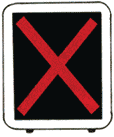
Section 1.5 Continued: Lane Control Signals
Lane Control Signals
Some roadways are designed to accommodate different traffic demands during the day through the use of a reversible lane system. Appropriate travel lanes on a roadway utilizing a reversible lane system are indicated as follows:
No travel allowed signal

No travel allowed in this lane in the direction you are going.
Clear the lane or left turn permitted signal
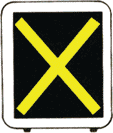
“Steady” — clear the lane “Flashing” — left turn permitted
Travel in lane signal
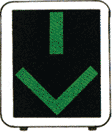
Travel in lane.
Overhead Lane Signs
Left turn only sign

Left turn only.
Straight or left turn only sign

Straight or left turn only.
Right turn only sign

Right turn only.
Pedestrian Signals
Walk signal
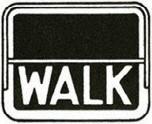
Leave the curb to cross the street.
Orange Don't Walk signal
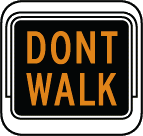
Do not leave curb.
Red Don't Walk signal
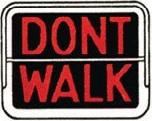
Flashing — do not leave curb, but complete walking across the street if already started.
Pedestrian safety guide sign
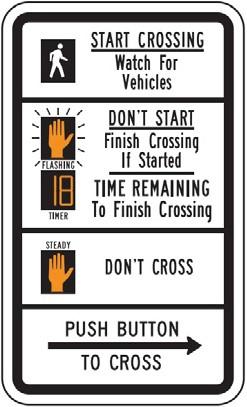
HAWK Signal
“HAWK’ stands for High-Intensity Activated Crosswalk. This signal is also known as a Pedestrian Hybrid Beacon (PHB), and it is designed to help pedestrians safely cross busy streets. Pedestrians push a button to activate the overhead beacon and stop road traffic. When WALK appears on the Pedestrian signal, pedestrians can cross the street.
Dark
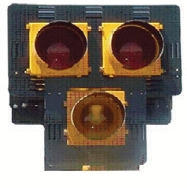
The HAWK remains DARK for traffic unless a pedestrian activates the push-button.
Flashing
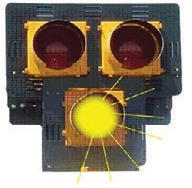
When a pedestrian presses the button, the signal is activated. Approaching drivers will see a FLASHING YELLOW signal for a few seconds.
Solid Yellow
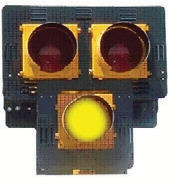
The flashing yellow is followed by a SOLID YELLOW signal, indicating drivers should reduce speed and be prepared to stop.
Solid Red
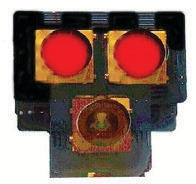
The solid yellow is followed by double SOLID RED signals, requiring drivers to stop.
Flashing Red
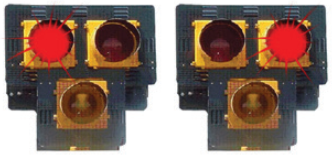
The double solid red signals are followed by alternating FLASHING RED signals. This requires drivers to come to a full STOP, and proceed when pedestrians have cleared the crosswalk. The signal will then go dark until activated again by a pedestrian.